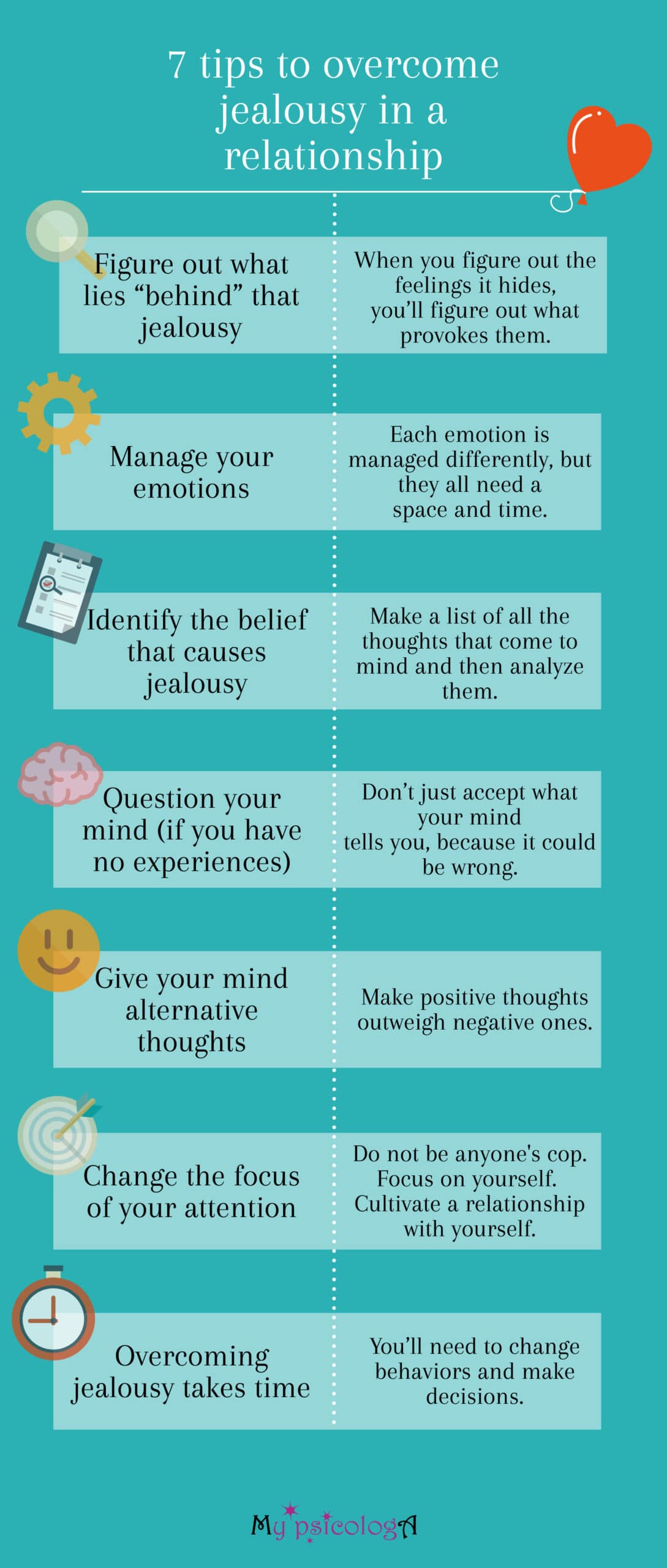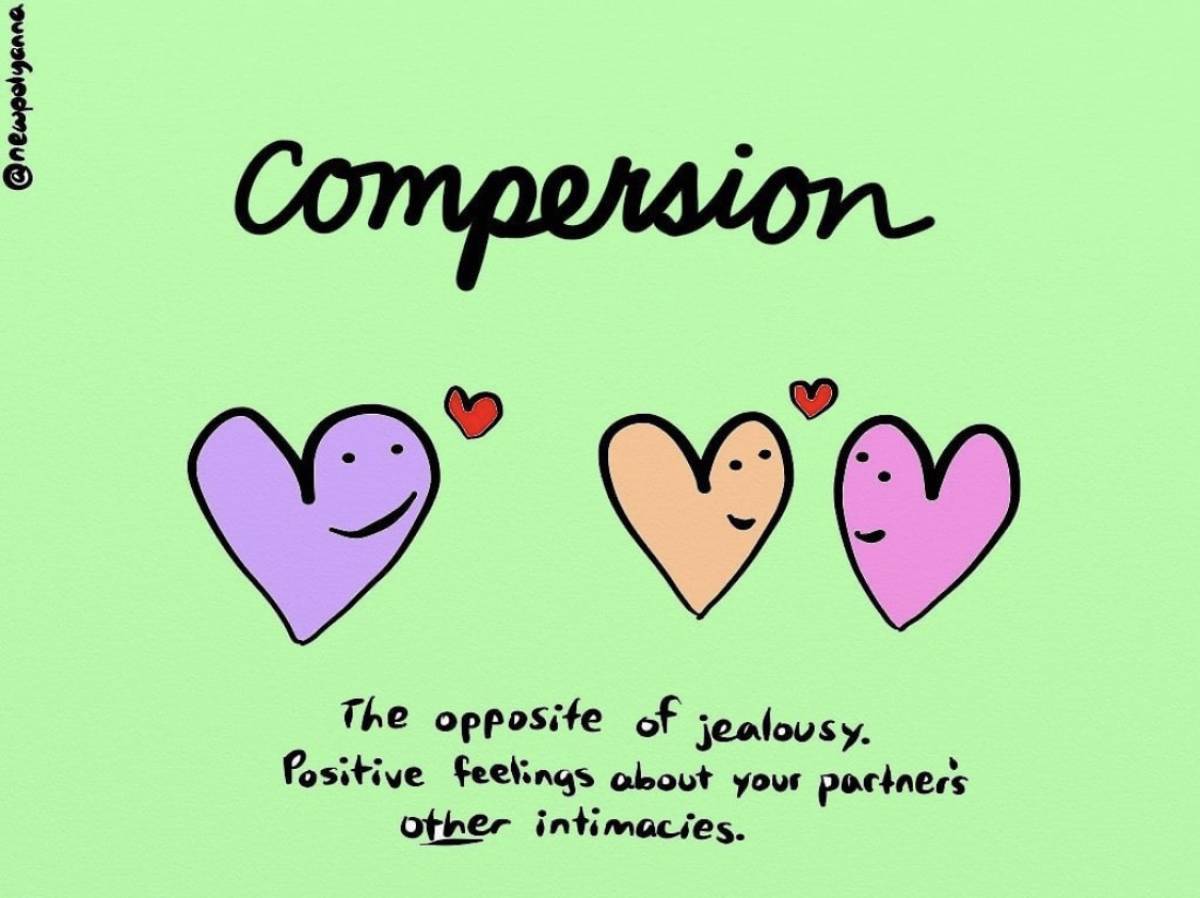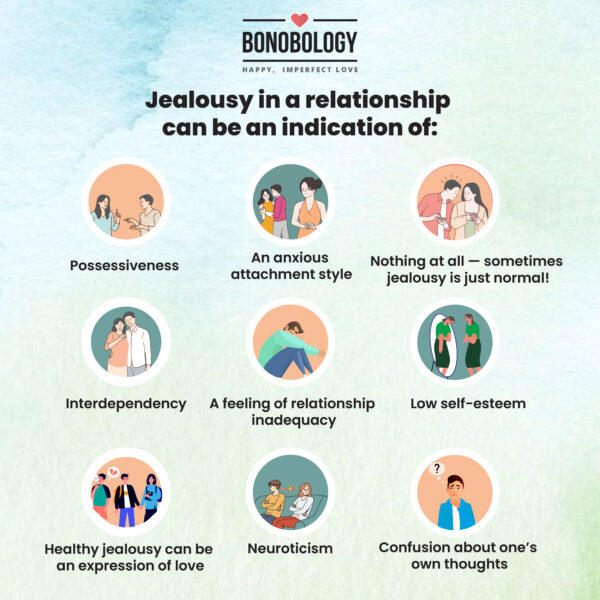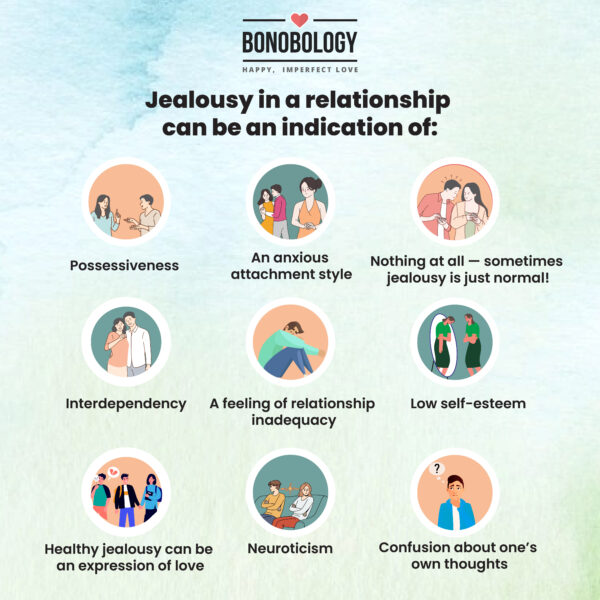
Understanding Jealousy in Long-Term Relationships
Definition of Jealousy
Jealousy can be defined as an emotional response that arises from the perception of a perceived threat to a valued relationship. In long-term partnerships, jealousy often emerges when one partner feels insecure about their importance, love, or connection with the other. This feeling can manifest in various ways, affecting relationship dynamics, interactions, and overall satisfaction. For instance, consider a scenario where Mark constantly feels an uneasy knot in his stomach when his girlfriend, Sarah, hangs out with her male friends. This is a classic example of how perceived threats can breed feelings of jealousy.
Feeling jealous is normal to some extent; it is a natural human emotion. However, how couples navigate these feelings defines the health of their relationship. Recognizing jealousy as a signal rather than a hindrance can be transformative.
Types of Jealousy
Jealousy can be categorized into several types, each influenced by different factors:
- Situational Jealousy: This occurs in specific instances, often triggered by actions or circumstances. For example, when one partner spends more time at work or with friends, the other can feel insecure.
- Chronic Jealousy: Individuals with low self-esteem may experience this, leading to persistent feelings of jealousy regardless of the circumstances. It can become a constant strain on the relationship.
- Romantic Jealousy: This type specifically pertains to romantic relationships and can arise from a partner’s close friendship with someone else, often leading to anxiety about fidelity.
Understanding the various types of jealousy helps couples identify and address the root causes, paving the way for more robust and healthier partnerships.

Root Causes of Jealousy
Insecurities and Self-Esteem
Diving deeper into the emotional landscape of jealousy, it’s crucial to understand that insecurities and self-esteem play a significant role. Many individuals grapple with feelings of inadequacy, often influenced by their upbringing or past interactions. For instance, Emma might constantly compare herself to others, feeling she doesn’t measure up. When she sees her partner enjoying time with attractive friends, her insecurities bubble to the surface, provoking jealousy.
Key factors contributing to insecurities include:
- Negative Self-Talk: Constantly putting oneself down can lead to a diminished sense of self-worth.
- Comparison to Others: Social media amplifies this issue, with people often showcasing their best moments, leaving others feeling like they fall short.
Addressing these insecurities through positive affirmations and supportive conversations can help reduce jealousy and build a healthier self-image.
Past Experiences and Trauma
Another root cause of jealousy often lies in past experiences and trauma. Individuals with a history of betrayal or abandonment may develop a deep-seated fear that their current partner will do the same. For example, Tom experienced infidelity in a prior relationship, which left him emotionally scarred. When he enters a new relationship with Jessica, his old wounds may lead to a protective jealousy whenever he feels she’s spending time with other men.
Understanding these past influences can be pivotal in healing. Consider these aspects:
- Previous Relationships: Past trauma can cause individuals to project their fears onto their current partner.
- Childhood Experiences: A lack of emotional support or affection during formative years can lead to heightened sensitivity in adult relationships.
By recognizing and addressing these underlying causes, individuals can begin to break the cycle of jealousy and cultivate a more trusting and loving partnership.

Communication Strategies
Open and Honest Conversations
Effective communication is vital to mitigating jealousy in long-term relationships. One of the most powerful tools couples can employ is open and honest conversations. Sharing feelings—especially when it comes to jealousy—can help partners understand each other on a deeper level. For instance, when Lily felt jealous of her partner’s late-night outings with friends, she chose to approach him calmly. During their discussion, she expressed her feelings without assigning blame, saying something like, “I feel a bit insecure when you’re out late. It would really help me if we could talk about it.”
Here are some tips for fostering productive conversations:
- Create a Safe Space: Ensure that both partners feel comfortable expressing their thoughts without fear of judgment.
- Use “I” Statements: Frame feelings using “I” to communicate personal emotions, such as “I feel anxious when you’re out” instead of “You make me anxious.”
- Listen Actively: Encourage each other to listen and understand without interrupting.
Setting Boundaries
Another essential communication strategy is setting boundaries. Establishing clear and mutual guidelines can help prevent misunderstandings that might trigger jealousy. For example, Sarah and Mike decided to outline specific times for socializing with friends and keep each other informed about who they’re with. This kind of openness can significantly reduce feelings of insecurity.
Consider these boundary-setting tips:
- Discuss Social Interactions: Talk openly about what is acceptable and what may cross a line for either partner.
- Regular Check-Ins: Schedule times to revisit these boundaries as both partners evolve and grow.
By implementing open conversations and establishing boundaries, couples can cultivate a transparent relationship dynamic, paving the way for trust and understanding while minimizing jealousy.

Building Trust
Trust-Building Activities
Building trust is a fundamental aspect of overcoming jealousy in long-term relationships. Engaging in trust-building activities can foster a sense of security and connection between partners. For example, Derek and Maya decided to participate in team-building exercises, such as escape rooms and cooking classes, to strengthen their bond. These shared experiences allow them to rely on each other and deepen their partnership.
Consider incorporating the following trust-building activities into your relationship:
- Adventure Together: Engage in activities that require teamwork—like hiking or paddleboarding—to build reliance on one another.
- Share Personal Stories: Set aside time to share both fun memories and serious life experiences, which can enhance understanding and empathy.
- Create Rituals: Establish regular rituals, whether it’s a weekly date night or a monthly couple’s retreat, reinforcing commitment.
Reinforcing Mutual Respect
Another critical element in building trust is reinforcing mutual respect. This means valuing each other’s feelings, opinions, and boundaries. Recognizing that both partners bring unique perspectives fosters an environment where both feel heard and valued. For instance, when Clara voiced her discomfort about a particular friend of her partner, Ben actively listened and respected her feelings by discussing his friendship boundaries.
To reinforce mutual respect, try these strategies:
- Acknowledge Differences: Embrace the fact that differences can enrich a relationship rather than detract from it.
- Express Appreciation: Regularly thank each other for the little things, whether it’s making dinner or listening to concerns.
- Encourage Each Other: Support your partner’s aspirations, demonstrating that their goals matter.
By actively participating in trust-building activities and reinforcing mutual respect, couples can create a secure and loving environment, significantly diminishing feelings of jealousy and enriching their relationship.

Self-Reflection and Self-Care
Managing Emotions
Self-reflection and self-care are vital tools in handling jealousy and fostering healthier relationships. The first step is managing emotions—recognizing that they can sometimes cloud judgment. For instance, when Alex felt jealous of his partner’s close friendship with a co-worker, he took a moment to pause and reflect on the roots of his feelings. Instead of reacting impulsively, he practiced mindfulness, which allowed him to sift through his emotions calmly.
Here are some effective strategies for managing emotions:
- Journaling: Write down your feelings. This can help clarify complex emotions and provide insights into patterns or triggers.
- Practice Mindfulness: Engage in mindfulness or meditation practices to cultivate a sense of peace and self-awareness.
- Pause Before Responding: Take a moment to breathe and reflect before reacting in a heated conversation. This can prevent further escalation and misunderstandings.
Individual Growth and Development
In addition to managing emotions, prioritizing individual growth is crucial for both partners. Personal development not only enhances self-esteem but also contributes positively to the relationship. For example, Jessica decided to pursue a new hobby—painting. This not only enriched her sense of self but also allowed her to bring fresh energy into her relationship.
Consider these avenues for individual growth:
- Explore New Interests: Encourage each other to pursue personal hobbies, which can bring fulfillment and satisfaction.
- Set Personal Goals: Establish individual goals and support each other in achieving them. This can create pride and mutual respect within the relationship.
- Seek New Experiences: Attend workshops or join groups that foster personal development and expose you to new perspectives.
By actively focusing on managing emotions and committing to individual growth, partners can reinforce their self-worth and cultivate a thriving, less jealous relationship.

Seeking Professional Help
Couples Therapy
Sometimes, navigating jealousy in a long-term relationship can feel overwhelming, and that’s where seeking professional help, such as couples therapy, can make a significant difference. Couples therapy provides a safe and structured environment for partners to work through their feelings collaboratively. For example, when Sophie and Brian found themselves caught in a cycle of jealousy and misunderstandings, they decided to see a therapist. Through guided sessions, they learned to express their feelings constructively and gained valuable insights into each other’s emotional landscapes.
Here are some benefits of couples therapy:
- Facilitated Communication: A therapist can help mediate discussions, ensuring both partners feel heard.
- Identifying Patterns: Couples often find recurring themes in their relationship that contribute to jealousy, which can be addressed more effectively in therapy.
- Developing Coping Strategies: Therapists can equip couples with tools to manage jealousy and strengthen their bond.
Individual Counseling
In addition to couples therapy, individual counseling is also a beneficial avenue, especially for addressing personal issues that may fuel feelings of jealousy. Taking a step back for individual growth can provide clarity and healing. For instance, Mark sought individual counseling after he recognized that his deep-rooted insecurities were affecting his relationship. Through therapy, he learned to build his self-esteem and address his fears, which ultimately improved his connection with his partner.
Consider the advantages of individual counseling:
- Personalized Attention: Focus on individual challenges without the pressure of addressing relationship dynamics in the moment.
- Healing Past Wounds: Work through past traumas or experiences that may influence current feelings of jealousy.
- Self-Discovery: Individual counseling promotes self-awareness, allowing you to identify triggers and improve emotional regulation.
By embracing the possibility of professional help, whether through couples therapy or individual counseling, partners can gain deeper insights and tools, leading to healthier interactions and a stronger foundation for their relationship.

Cultivating Gratitude and Appreciation
Focusing on Positive Aspects
As couples navigate the complexities of jealousy, cultivating gratitude and appreciation can serve as powerful antidotes. Shifting focus to positive aspects of the relationship can transform perspectives and foster connection. For example, when Rachel felt a twinge of jealousy about her partner’s interactions with friends, she began consciously acknowledging the traits she loved about him—his kindness, sense of humor, and support during tough times. This practice not only helped mitigate her jealousy but also deepened her overall appreciation for their bond.
Here are some ways to focus on the positive:
- Daily Gratitude Lists: Set aside time each day to write down three things you appreciate about your partner. This can shift your mindset toward positivity.
- Highlight Small Wins: Celebrate everyday achievements together, whether it’s completing a project or simply making dinner. Acknowledging these moments fosters a cooperative spirit.
- Practice Perspective-Taking: When feelings of jealousy arise, pause and consider your partner’s perspective. This practice can build empathy and lessen negative emotions.
Expressing Gratitude
Equally important is the act of expressing gratitude. Openly acknowledging your partner’s efforts and contributions can strengthen the relationship and reduce envy. For instance, when Max surprised his girlfriend, Claire, with breakfast in bed, Claire took a moment to express her appreciation wholeheartedly. Not only did it make Max feel valued, but it also reinforced their emotional connection.
Consider these ways to express gratitude:
- Verbal Affirmations: Make it a habit to verbally thank your partner for the little things they do, such as helping with chores or being a listening ear.
- Write Notes: Leave little notes around the house to surprise your partner, expressing what you appreciate about them.
- Acts of Kindness: Show your gratitude through thoughtful gestures, like preparing a favorite meal or planning a special date night.
By focusing on positive aspects and regularly expressing gratitude, couples can build a more resilient relationship, where love and appreciation supersede jealousy and insecurity.

Long-Term Relationship Maintenance
Regular Check-Ins
Maintaining a long-term relationship requires ongoing effort and communication. One effective way to keep the connection strong is through regular check-ins. These are intentional conversations that allow partners to discuss their feelings, address concerns, and celebrate successes. For instance, when Jenna and Luke set aside time every Sunday to reflect on their week, it turned into a cherished ritual. They would talk about what went well, what felt challenging, and how they could support each other going forward.
Consider the following strategies for effective check-ins:
- Schedule Time: Make it a priority to dedicate time for these conversations. Whether weekly or biweekly, having a consistent schedule promotes openness.
- Create a Comfortable Environment: Choose a relaxed setting, like a cozy spot at home or a quiet café, where both partners feel safe to express themselves.
- Use Open-Ended Questions: Encourage deeper discussions by asking questions like, “What’s been on your mind lately?” or “How can I better support you?”
Evolving Together
Another crucial aspect of long-term relationship maintenance is the ability to evolve together. Relationships are not static; they grow and change as individuals do. Embracing this evolution fosters resilience and adaptation to life’s changes. For example, when Sarah decided to pursue higher education, her partner, Mike, took the initiative to support her by managing household responsibilities, ensuring she had the space to focus on her studies.
Ways to ensure growth together include:
- Pursue Shared Goals: Set mutual goals, whether traveling, buying a home, or learning new skills. Collaborating on projects fosters teamwork.
- Encourage Individual Passions: Support one another’s personal interests, even if they differ. This allows for exploration and new experiences, enriching the relationship.
- Reflect on Growth: Regularly discuss how you’ve both changed and what you’ve learned from each other. This can deepen your bond and appreciation for the journey together.
By incorporating regular check-ins and embracing opportunities for growth, couples can create a thriving relationship that evolves positively over time, minimizing jealousy and fostering deeper connections.

Conclusion
Recap of Strategies
As we’ve explored throughout this discussion, navigating jealousy in long-term relationships is a multifaceted journey that requires open-hearted communication, trust-building activities, and individual growth. To recap some of the effective strategies we’ve discussed:
- Understanding Jealousy: Define it and recognize its various types to understand how it affects your relationship.
- Root Causes: Identify insecurities, self-esteem issues, and past experiences that might trigger jealousy in yourself or your partner.
- Communication: Engage in open and honest conversations, and set boundaries to foster understanding.
- Trust Building: Participate in trust-building activities and reinforce mutual respect to cultivate a secure relationship environment.
- Self-Reflection: Manage emotions through self-reflection and prioritize individual growth for a healthier mindset.
- Professional Help: Consider seeking couples therapy or individual counseling if feelings of jealousy become overwhelming.
- Cultivating Gratitude: Focus on positive aspects of your partner and express gratitude regularly to strengthen the emotional connection.
- Long-Term Maintenance: Schedule regular check-ins and evolve together as partners to ensure a thriving relationship.
Encouragement for Healthy Relationships
In conclusion, jealousy does not have to be a destructive force in relationships. Instead, it can serve as a catalyst for growth and deeper understanding when approached with care and intention. Every couple has the potential to build a loving, respectful, and resilient partnership. Remember that it’s perfectly normal to encounter challenges, but how you address and navigate them will define your journey together.
With commitment and patience, you can create a relationship foundation strengthened by trust, gratitude, and open communication. Embrace the journey, and encourage each other to continue growing together, as this is the heart of a truly healthy relationship.
